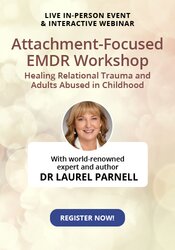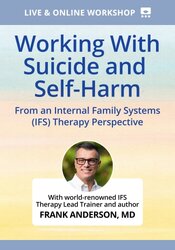Enrol in an online course today for flexible, self-paced learning—no fixed schedule required. Plus, enjoy lifetime access to course materials for convenient revisiting.
Reframing the University Mental Health Crisis
8 March, 2023

There is a crisis in mental health in UK universities – but not the one that is usually reported. This is because much of this crisis is actually due to institutional anxiety and the unrealistic pressures placed on student services and staff, leading to illness, burn out and poor staff retention.
This pressure is largely driven by the distorted perception from parts of the media, campaigning organisations and some of the judgements from Coroners courts in recent years, giving the idea that universities should have omnipotent powers to be able to prevent all mental health problems and suicides of university students.
The figures tell a different story. The 2018 ONS report on student suicide rates showed that, far from being disproportionally high, they were significantly lower than the same age group in the population as a whole. It also showed that suicides of younger aged undergraduate students – which is the group that causes most media concern – were relatively very low, compared with the much higher rates of older mature students, usually PT PG (Part-Time Post-Graduate) students, who often have extensive histories of mental health problems.
This is not to downplay the significance of student suicides, and any suicide is one too many.
However, no matter what level of mental health support is provided, there will still be suicides in institutions as large and complex as universities. Risk has to be carefully managed through thoughtful and clinically appropriate services and strategies, which contain both the anxiety of the students and – crucially – the staff.
Anxiety is massively increased if senior managers and institutions act like anxious control freaks and set themselves the impossible goal of eradicating all risk.
It also undermines the clinical work that can be achieved through good short-term counselling, which can help the student to be able to move from a position of being overwhelmed by their emotions and distress and start to be able to think about their life and situation. Providing good clinical short-term counselling is the most effective way to reduce distress and, with it, reduce the risk of suicide and serious self-harm.
There has been a growing argument, often from senior managers in the HE sector, for more self-help psycho-educational wellbeing interventions and workshops/materials. The idea is to give students the skills to stop them having mental health problems in the first place – trying to help students ‘at the top of the stream’ rather than waiting for the student ‘down the bottom of the stream’, when student services can only then offer ‘reactive’ support.
This all sounds very sensible when it is presented. However, it is based on a complete delusion as to how real people and students actually behave and act.
Trying to make real change in your life, thoughts and behaviour is very difficult and most people are extremely resistant to change. Most people are only prepared to make changes in their thinking and behaviour when they have a problem or difficult life situation they can’t ignore, and are often feeling overwhelmed and hopeless.
If students can see a counsellor at this point, they can start to develop the insight and skills to have more of a sense of agency and empowerment. The counsellor can help contain and explore with the student what is going on in their life and the associated feelings of being overwhelmed. This will reduce anxiety and help the student be able to move from reactive emotion driven behaviour or denial to a more reflective form of rational thinking.
It is only at this point that students can engage with and make use of those wellbeing based strategies and skills, and make informed life changes. So the ‘up stream versus downstream argument’ makes no sense.
It is a happy coincidence (for managers and budget holders) that these types of interventions can be offered by non-clinically trained wellbeing practitioners, rather than more expensive, clinically trained counsellors, therapists and psychologists.
This usually goes hand in hand with a straw man argument that additionally implies that counselling is not effective because it creates a ‘dependency’ culture and doesn’t promote emotional resilience.
In fact, no university counselling service in the UK offers anything more than brief or very brief counselling. The reason why counselling services often have such long waiting times is because there is such a high demand for counselling from the student body. Counselling, offered by an embedded university counselling service, is still the main (by a country mile) request students make to help support their mental health.
In this online, disconnected, quick fix, ‘App’ driven world, students still desire to make contact with another human with the skills and experience to keep calm, listen, empathise and think with them, even for a session or two.
In my 30 years plus experience of working in this sector, both in the UK and worldwide, students still need that human understanding and connection which can make all the difference, change lives and even save them. No matter how dispirited and misunderstood we may feel, we need to hold onto this fact and recognise its importance and strength.



![Ceo63b3w0uabhly4ycu3w[1]](/media/wweaj4n3/ceo63b3w0uabhly4ycu3w-1.jpg?width=410&height=410&v=1da9ffc7ac3acb0&format=webp&quality=80)













